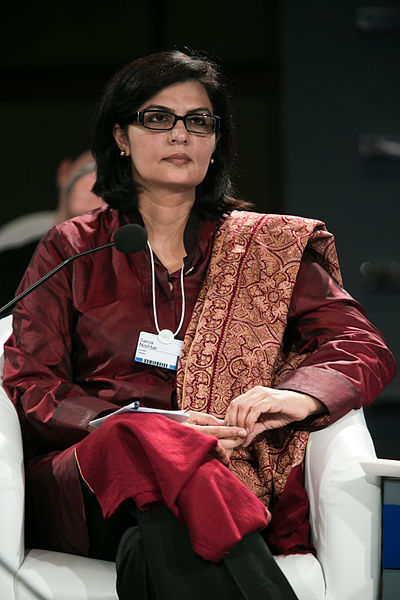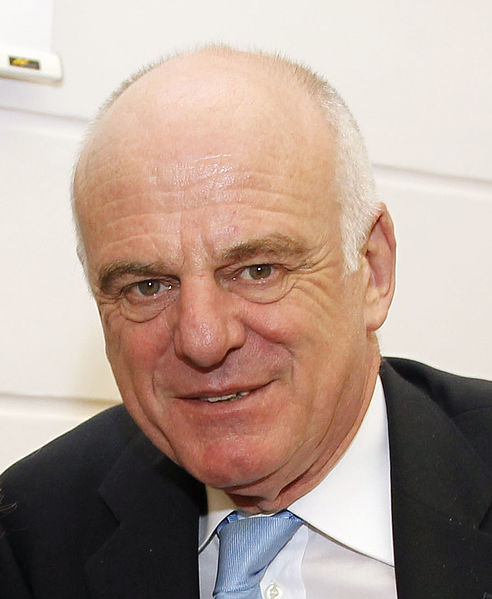Aileen Marshall
Most of us here at The Rockefeller University, and the Tri-Institutions, do basic research: figuring out the molecular mechanisms of various life forms. Many of us also do translational research: taking that basic research and applying it towards a product. However, we all do our work for the betterment of the human race, to paraphrase Rockefeller’s motto. We are all concerned in some way, of different aspects of human health. Most of us have probably dealt with some data from the World Health Organization (WHO) at some point in our careers. How many of you know that WHO is currently in the process of electing a new head, the title of Director-General? How much of an impact this will have on our work remains to be seen, but WHO’s work effects many people around the world in some way.
In 1945, Chinese United Nations (UN) delegate, Dr. Sze, proposed the creation of an international health agency under the UN to focus on public health. WHO was finally ratified on April 7, 1948. It was the first specialized UN agency to which every member pledged. In its early years, WHO ran programs to give mass vaccinations for tuberculosis and started a malaria and small pox eradication programs. They started an epidemiological information service that has become a standard today. In 1977, they released their first list of essential medicines: a list of drugs that WHO believes all countries around the world should have on hand. This can be very helpful to healthcare workers and advocates around the world in order to petition their governments for funding for these medications. In 1979, WHO reported that small pox had been eradicated, and with that, it became the first disease to be eliminated by human intervention. In 1986, WHO started its global program on the prevention and treatment of HIV/AIDS around the world.
WHO is currently focused on many areas, primarily communicable diseases such as AIDS, Ebola, malaria, and tuberculosis. It also has programs promoting reproductive and occupational health, nutrition, healthy aging, and substance abuse prevention. WHO encourages countries to develop reporting methods, promotes cooperation between scientific and medical groups, and help governments develop research agendas. Today, it is known as the organization that puts health statistics from around the world in a unified system.
Besides these accomplishments, WHO has also endured controversy and criticism. It reproached the Vatican’s ban on condoms as being dangerous considering the AIDS pandemic, and it has been criticized for its classification of red meat and cell phone signals as possible carcinogens. In recent years, they have had negative media attention for a slow response to the Ebola crisis. Some say their focus is too wide and that the organization engenders too much bureaucratic red tape and internal politics. There have been calls for more accountability and transparency within WHO. There has also been a lack of funding for many of their efforts.
Located in Geneva, Switzerland, today WHO has 194 member states, and offices in Congo, Egypt, Denmark, India, the Philippines, and the United States. It is financed by contributions from member states, the largest contributor being the United States. WHO’s policy making branch is the World Health Assembly, which member states appoint delegates to. The delegates meet annually, usually in May, to vote on matters of policy and budget, and they elect a new Director-General every five years. The next election will have taken place by the time of this publication (at the end of May). The current Director-General is Margaret Chan, a physician from Hong Kong. Currently there are three candidates for the new head: Tedros Adhanom Ghebreyesus, from Ethiopia, Sania Nishtar from Pakistan, and David Nabarro of the United Kingdom. Whomever is elected will take office on July 1, 2017.

Tedros Ghebreyesus, 52, was born in Eritrea, and received a Bachelor’s in Biology from the University of Asmara in Ethiopia. He has a Master’s of Science in Immunology of Infectious Diseases from the London School of Hygiene and Tropical Medicine and a Ph.D. in Community Health from the University of Nottingham. He is the only non-medical doctor of the three candidates. Ghebreyesus’ first job out of college was as a junior public health expert for the Ministry of Health of Ethiopia where he worked on methods of malaria prevention. Then Ghebreyesus worked as the head of a Regional Health Bureau. He is recognized for a 20% reduction in AIDS and 70% reduction in malaria cases in that region during his tenure. In 2005, he was appointed Minister of Health. As Minister, he hired over 30,000 health extension workers throughout the country, increased hospital staffing and connected hospitals to the internet. He initiated a program that distributed 20 million insecticide-treated nets throughout Ethiopia. During his time as Minister of Health, deaths from malaria decreased by 50%, new AIDS infections by about 90%, and infant mortality by almost 30%. In 2012, he was appointed Minister of Foreign Affairs where he encouraged Ethiopia to adhere to WHO guidelines during the Ebola epidemic. He is known for having published many papers on malaria. As a candidate for Director-General, Gheebreyesus has stated that he supports strengthening health care systems and universal health care coverage.

Sania Nishtar, 54, was born in Peshawar, and received her medical degree in cardiology from Khyber Medical College in Pakistan. She earned a Ph.D. in Medicine from King’s College London. After medical school, she worked as a cardiologist at the Pakistan Institute of Medical Sciences. In 1999, she founded Heartfile, a health policy think tank based in Islamabad, focused on ways to improve Pakistan’s health care system. She has served as an advisor to WHO on many occasions, most prominently co-chairing the WHO Commission on Ending Childhood Obesity. Nishtar wrote Choked Pipes: Reforming Pakistan’s Mixed Health Systems, a book that was published in 2010. In 2013, she was a Federal Minister in the Government of Pakistan, overseeing the Ministries of Science and Technology, Education and Training, and Information Technology and Telecom. In this role she helped establish a Ministry of Health. Nishtar is a member of the Lancet and Rockefeller Foundation Commission on Planetary Health and the Working Group on Private Sector Health Systems established by Results for Development and the Rockefeller Foundation, among many other boards.

David Nabarrro, 68, is from the United Kingdom and obtained his medical degree from the University of Oxford. In his early years, he was a Medical Officer for Save the Children in Iraq and a District Child Health Officer in Nepal. Later, he became South Asia Regional Manager for Save the Children. Nabarro joined WHO in 1999, first as a project manager for Roll Back Malaria, a partnership among countries to coordinate efforts against malaria. Next, he helped start their Global Fund to Fight AIDS, Tuberculosis, and Malaria. In 2003, he moved to WHO’s Sustainable Development and Healthy Environments division. He was the UN Special Envoy on Ebola in 2014. In 2015, he was Chair of an advisory group on WHO’s responses to outbreaks and emergencies. Now he is special advisor to the UN Secretary-General on sustainable development and climate change, and leading the UN’s response to the Cholera outbreak in Haiti. Nabarro has said that if he is elected WHO Director-General, his four goals would be: sustainable development goals, responses to outbreaks and emergencies, building relations with member states, and people-centered health policies.
By the time this issue comes out, it may be publicly known which of these candidates will be the next Director-General of WHO. Whichever one of the three candidates is elected Director-General, let’s hope WHO keeps up their high standards of statistic reporting and encouraging collaboration between scientific groups.
